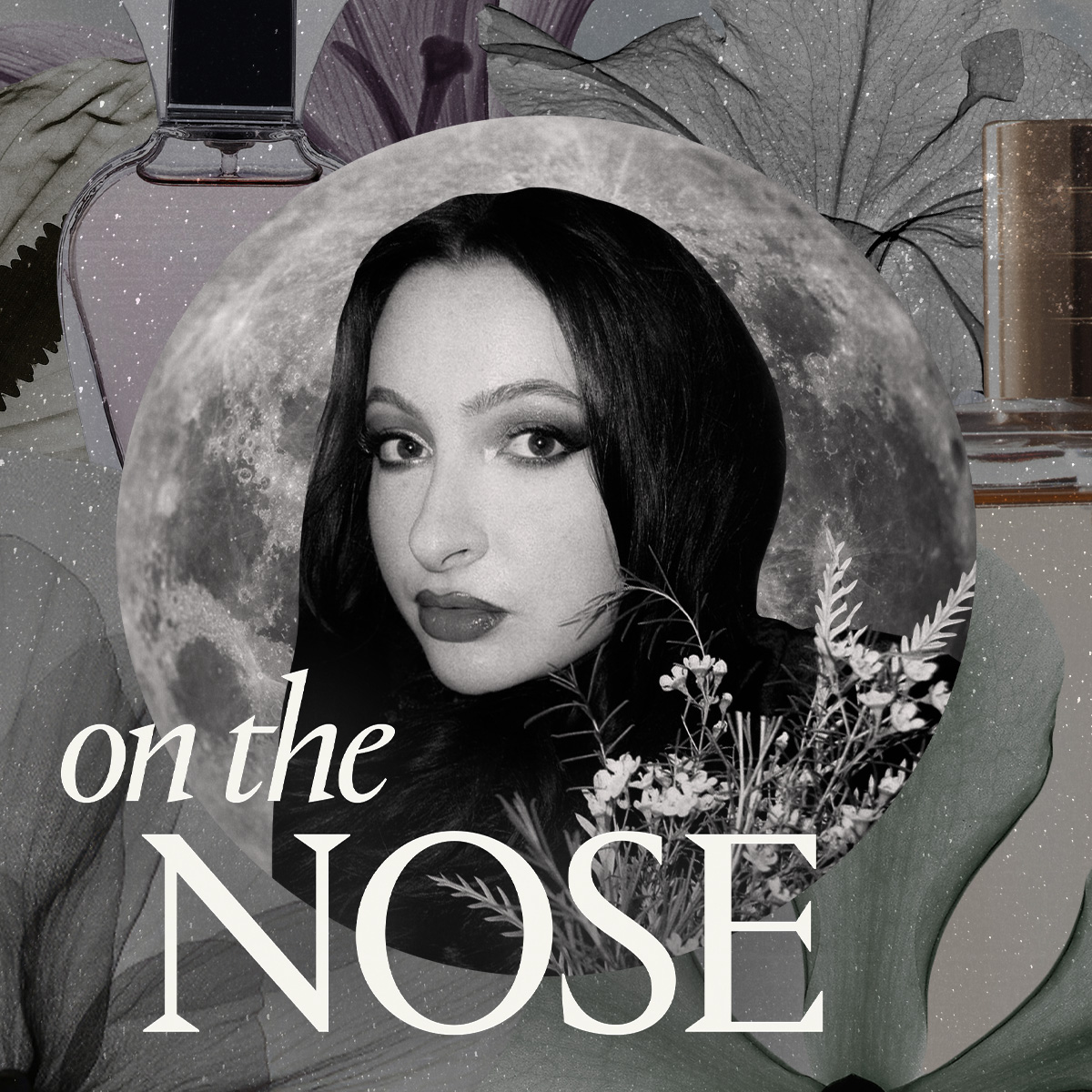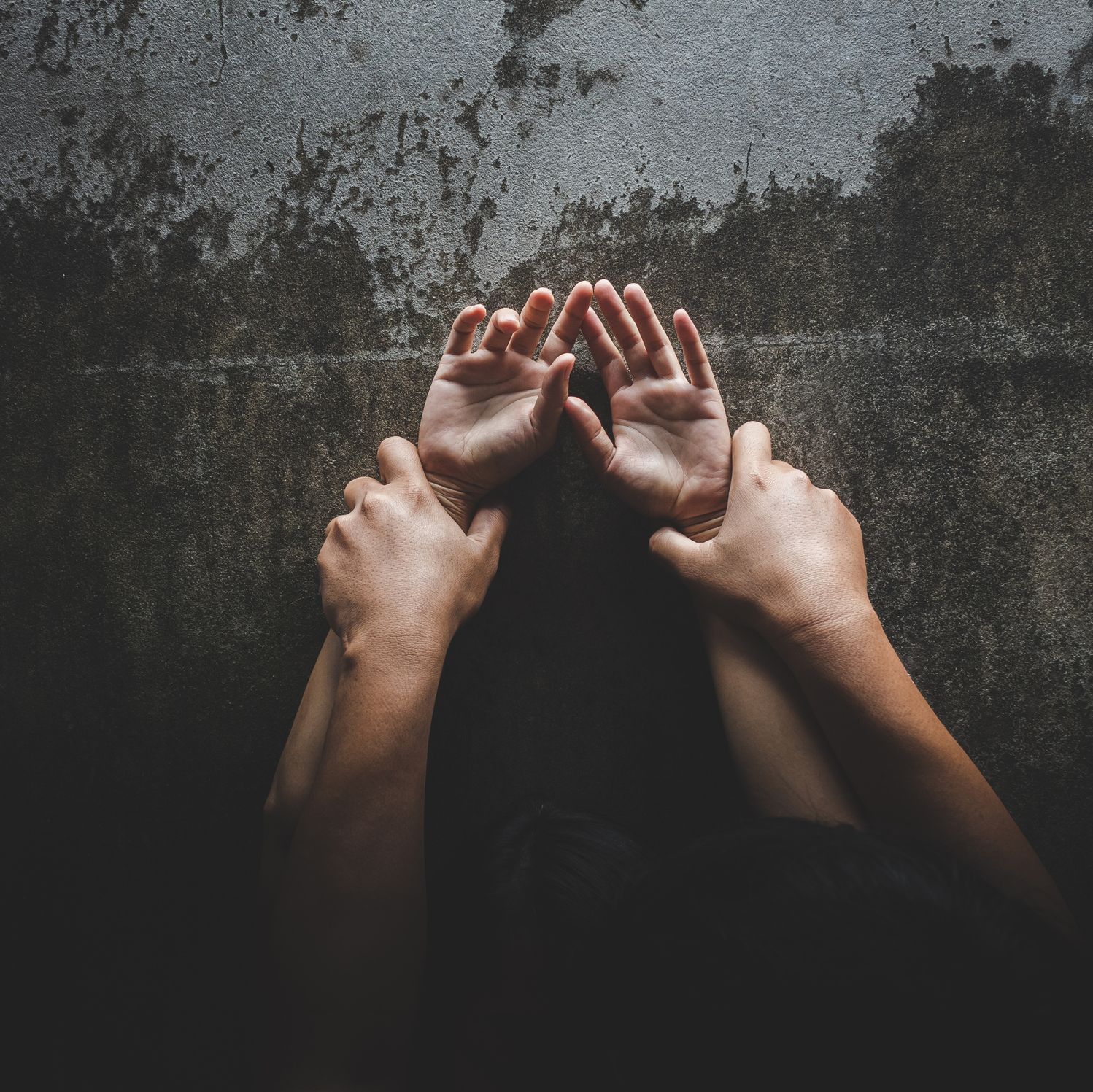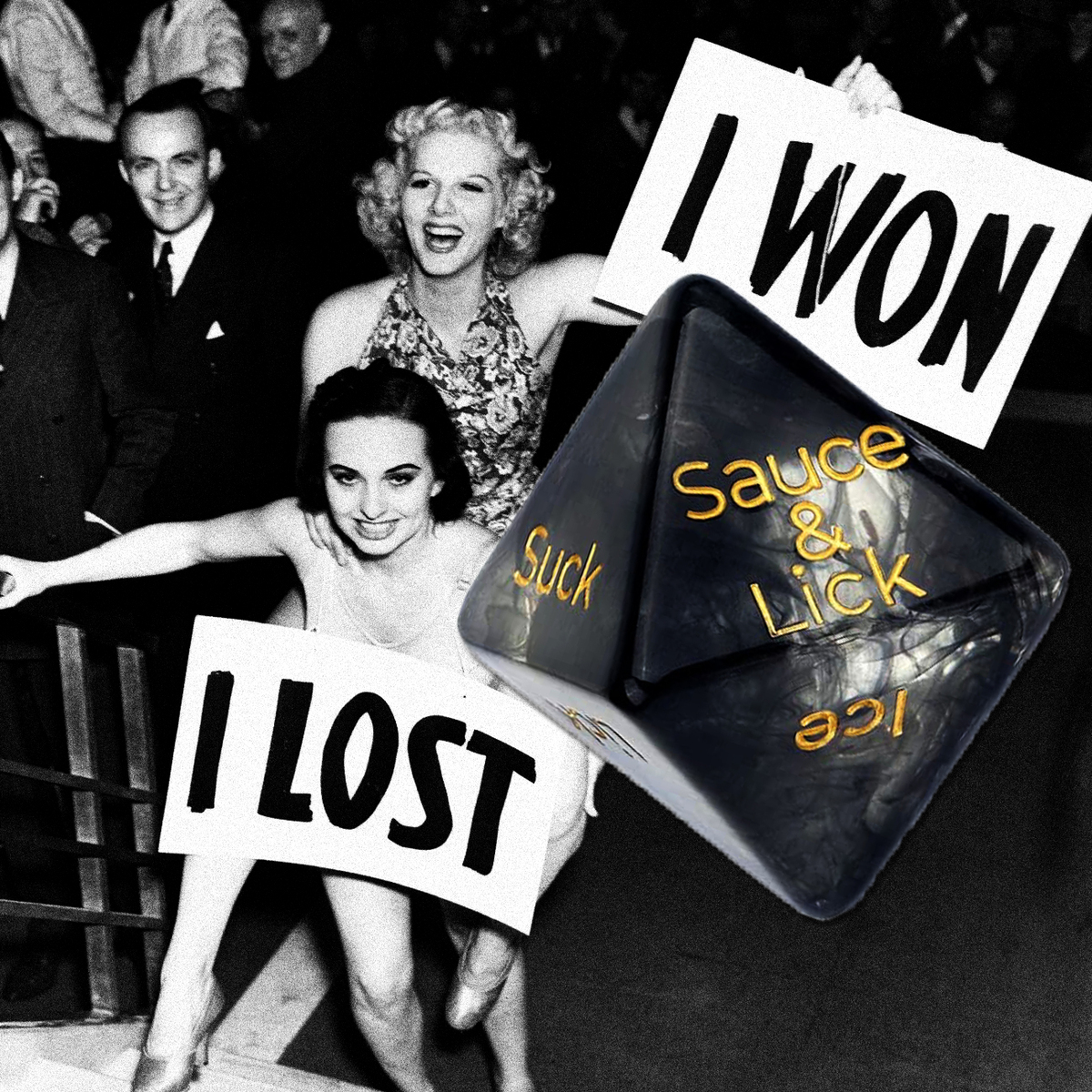Were You Born to Cheat?
If your father slept around, are you genetically doomed to do the same?

During the winter before my wedding, I was on assignment in Sicily, where I met Diego — a photojournalist with black hair, a scruffy beard, and warm brown eyes that could liquefy concrete. He was my guide in Palermo, driving me around the city on his motorcycle. On my last day, as we stood in a bombed-out cathedral — him talking about World War II, me trying to focus on his words — he started inching closer. Another inch. Then a fraction more, and he was in my personal space. The slightest gesture from me would have been an invitation. I froze. I was madly in love with my fiancé, so what the hell was I doing?
The desire to cheat is hardly a new emotion for me. In fact, I can fairly say that if you've dated me, there's a pretty good chance I was unfaithful. (I'm really sorry!) You might even call me a natural-born cheater — and I think I get it from my father.
Henry Pergament was a businessman, entrepreneur, and chemistry genius. By the time I was born, he'd raised several fortunes and had two families and half a dozen children in and out of wedlock. I have memories from my childhood that I wish I didn't: One night when I was about 10, I was at dinner with my sister, my father, and his friend Mike. I overheard my dad say, "What have I been up to? What men are up to when they're not with their wives."
Daily life in my family found my sisters, my mother, and me running around the house like it was a disrupted anthill, my father somewhere offscreen. He worked hard and was often in absentia. But as I started to understand the adult world in increments, I wondered: Was he with another woman when he could be home teaching me to take a picture/drive a stick shift/make potato pancakes?
In the fall of 1991, I flew back to boarding school in California from our home in New York; my father had driven me to the airport. Once at my dorm, I called home, and my mother sounded strange on the phone: "Your father never came home." He'd hugged me at the United terminal, then gotten in his car and driven all the way to Arizona, to his mistress. I remember thinking, How could he not tell me he wasn't coming back?
But then he did come back. A few months later, he showed up at my graduation — tan, fit, wearing a linen suit, his white hair longer than I'd ever seen it. I never spoke to him about his family sabbatical.
My father died 10 years ago, and to be fair, he was a great deal more than his infidelities. He had a Dickensian childhood — was raised in an orphanage, knew only poverty, never dreamed of going to college. He was highly intelligent (he invented film-processing systems that revolutionized photography), generous, and so handsome that Catherine Deneuve flirted with him and Audrey Hepburn tried to buy him a drink. (He declined; I never learned why.) I take after my father in many ways — I got his dark eyes, his hot temper, his taste for burned toast. And I understand why he cheated: There wasn't enough love in the world to make up for what he'd missed as a child. I just wish I wasn't doomed to repeat it.
Stay In The Know
Get exclusive access to fashion and beauty trends, hot-off-the-press celebrity news, and more.
The first time I strayed — I messed around on one high-school boyfriend with the next one — I called it "overlap." By college, I was overlapping all the time. My sister called me "boy crazy." Once, when I confided to my mother that I was torn between Peter and Matt, she barely contained her disapproval. "You have your father's sex drive," she said. Ouch, I thought. But, then, a second later: Could this be a genealogical pattern? What happens when the right person comes along?
I got married nearly two years ago to exactly the right person. I fell in love immediately and — cringe — told him so on — cringe, flinch, recoil — our second date. On our wedding day, I missed my dad terribly, like any fatherless bride, but something else was bugging me: Would I be able to respect marriage in a way that my father never could?
The other night at a dinner party, I posed a question to the table: "Could there be a gene for infidelity?" I asked. "No," said my doctor friend Michael through a mouthful of pasta. There is no coil in DNA that makes a person cheat. Period. But surely not all of our proclivities are learned, I said. Some of us are born loving public speaking or being great at languages — it just takes a few years to know it. So what if there is a libido gene? And a gene for impulsiveness? And what if a person has both?
"Sounds like an excuse," replied Michael.
Who knows why people cheat — too little attention, too much attention, fear, boredom? For me, it's always been the excitement principle — the promise of being naked with someone new, the physical draw and the universe willing me to lean in. When you consider the counterforce, the prissy and principled I'm not going to do that, it doesn't seem like a fair fight. But so far it works — fidelity always wins.
I never did kiss Diego, back in the ruins of Palermo. Sure, I wanted to, but it seemed small, childish. Too easy.
And now I have a strategy for ducking temptation. No, I don't imagine my husband's loving face. The notion of telling myself it's not worth it, don't throw it all away, blah, blah, blah, doesn't work for me. Instead, every time I sense it could happen, every moment I find myself attracted to someone and crossing into too flirty, I tell my husband. Because once I confess to him my lust for the hot bartender at the tapas place, I lose interest. Of course, copping to even a potential infidelity is not the most pleasant conversation — when I told my husband about Diego, he was understandably pissed. But then two things happened: He and I became closer, and Diego lost his sheen.
If there's such a thing as a cheating gene, it's not the same as attached earlobes — it predisposes us to a possibility, not a certainty. I'll know when I want to cheat, and because of my take-it-like-cough-medicine method, my husband will, too. I can vacuum the mystery right out of it and make my marriage stronger in the process. Maybe infidelity wasn't the only gene I got from my father — maybe, if I'm lucky, I got his fortitude as well.
Danielle Pergament wrote about Iraqi women forced into prostitution for the August '08 issue of Marie Claire. She lives with her husband in New York.
-
 Rihanna Matches Her Canadian Tuxedo to a Denim Dior Tote
Rihanna Matches Her Canadian Tuxedo to a Denim Dior ToteThe superstar accessorized her triple denim outfit with strappy snakeskin heels.
By Amy Mackelden
-
 Jennifer Lopez Trades a Pink Catsuit for a Sparkly Jumpsuit
Jennifer Lopez Trades a Pink Catsuit for a Sparkly JumpsuitThe superstar wore two totally different outfits at the Saudi Arabian Grand Prix.
By Amy Mackelden
-
 PSA: Your Fragrance Horoscope for Taurus Season Did Not Come to Play
PSA: Your Fragrance Horoscope for Taurus Season Did Not Come to PlayWhether you're cocooning or blooming, your scent is written in the stars.
By Aliza Kelly
-
 The All-Time Favorite Sex Positions of 11 Real Women
The All-Time Favorite Sex Positions of 11 Real WomenFeatures "It makes me feel like the sexiest woman on earth."
By The Editors
-
 The 22 Best Vibrators, According to Sex Toy Experts
The 22 Best Vibrators, According to Sex Toy ExpertsThe vibes are immaculate.
By Gabrielle Ulubay
-
 The 20 Best Sex Games for Couples in 2023
The 20 Best Sex Games for Couples in 2023Who said game nights need to be wholesome?
By Gabrielle Ulubay
-
 The 14 Best Lubes for Every Need
The 14 Best Lubes for Every NeedGood sex should always go smoothly.
By Gabrielle Ulubay
-
 30 Female-Friendly Porn Websites for Any Mood
30 Female-Friendly Porn Websites for Any MoodFeatures All the best websites, right this way.
By Kayleigh Roberts
-
 The 82 Best Cheap Date Ideas for Couples on a Budget
The 82 Best Cheap Date Ideas for Couples on a Budget"Love don't cost a thing." —J.Lo
By The Editors
-
 Diary of a Non-Monogamist
Diary of a Non-MonogamistRachel Krantz, author of the new book 'Open,' shares the ups and downs of her journey into the world of open relationships.
By Abigail Pesta
-
 COVID Forced My Polyamorous Marriage to Become Monogamous
COVID Forced My Polyamorous Marriage to Become MonogamousFor Melanie LaForce, pandemic-induced social distancing guidelines meant she could no longer see men outside of her marriage. But monogamy didn't just change her relationship with her husband—it changed her relationship with herself.
By Melanie LaForce